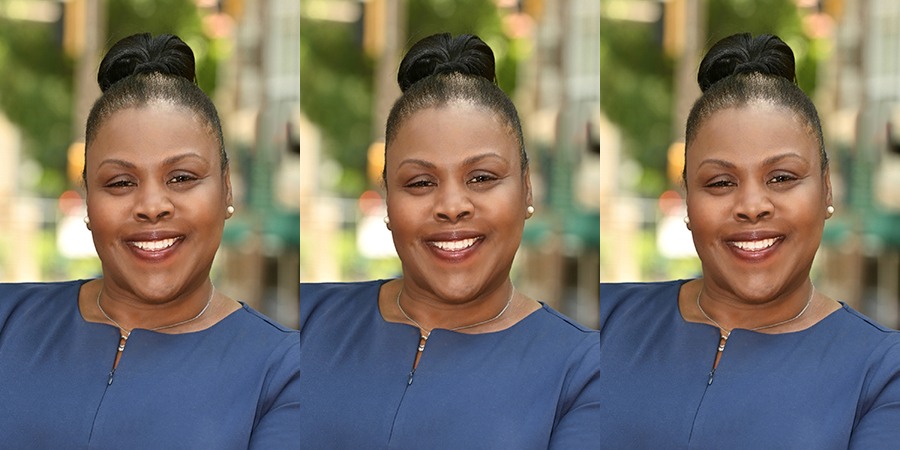Before Ronda Keys was a CMP Fellow—and a CMM, CEM, DES, CTA, HMCC and the assistant director of events at The Universities at Shady Grove—she was a little girl planning events complete with themes, invitations and menus for her Barbie dolls. She says, “Event design was a passion of mine at an early age!”
Today, she is a confident planner, with prowess and passion. A past event that stands out for her was a talent show for those over the age of 65. “It was wonderful to work with individuals who were able to showcase their talent for their community. This was a fun event and allowed much more creative freedom than a traditional company event,” she says. “The community engagement was inspiring as local government and elected officials were supportive of the event and encouraged their constituents to come out to the show.”
Keys has managed events of all types. An ardent learner, she has sought a holistic understanding of the events industry throughout her career, from domestic to international, the planner side to the supplier side. “It was my CMP designation that helped me feel confident in any endeavor that came my way,” she says.
Mastering Professional Development
Keys first entered the realm of meeting planning by volunteering at her church to organize meetings and events. It was there that a friend suggested she pursue event management professionally.
After moving to Maryland, Keys took a job at a major hotel chain to get a sense of the industry and see if it was a good fit. “I realized that helping people with the details of their event and creating special memories was definitely what I wanted to do,” she says. “From that moment on, I wanted to learn all that I could about different types of events and the skills needed to become an event manager.”
From there, she began pursuing further education and certifications, motivated to garner all the knowledge available to her. She joined the Potomac Chapter of Meeting Professionals International (MPI). She volunteered on various committees. Eventually, she took on leadership roles as she developed professionally. She attended several conferences, and found they gave her the opportunity to network with like-minded event professionals.
“It was refreshing to learn that others were experiencing some of the same challenges as me and that we could exchange ideas,” she says.
Becoming a CMP
While working in hotels, Keys noticed many of her clients held a CMP designation—and when working with them, she noticed a difference. “The clients that were CMPs seemed to be more organized and prepared to execute their events,” she says.
At that point, Keys decided that she, too, would earn her CMP. She began researching the designation, pursuing the required continuing education and studying for the exam.
Studying with Style
She purchased a study guide and began studying on her own. Later, upon joining the Potomac Chapter’s study group, she wished she had done so sooner, finding studying in a group far easier. “I could ask questions in real time and receive immediate feedback. The individuals in my cohort were more than willing to share their experiences, and I discovered that I had experiences to share with them as well… I was able to feel like I wasn’t in it alone,” she says.
In retrospect, she says she would have approached her study process differently. “Instead of trying to cram in all of the formulas, I would have created an outline of the items that I was not so familiar with and would have focused on those items more.”
Still, she says, “Studying for the exam was more challenging for me than the exam itself.”
It helped her to remember—and she recommends this to all future CMPs—the exam format. “Relax and answer the questions that are asked, not necessarily what you would do in the given situation,” she says. “In real time, we are trained to ‘make it happen’—and sometimes that means thinking outside of the box to get it done.”
Keys offers a piece of reassuring advice: “Since you need to be in the industry at least three years before applying for the CMP exam, you know more than you think you do. Just remember: You got this!
“I already was an event professional, and [earning] the CMP designation was a demonstration of knowledge that I already had.”
A CMP Out in the World
After passing the exam, Keys found her passion for the events industry even further ignited. She began volunteering with her MPI chapter to serve as a facilitator for the prep course and bootcamp.
One of the biggest impacts earning the CMP designation has made in Keys’ career is as simple as an amplified confidence. “I am quite certain of the basics and am also not afraid to explore the many aspects of the industry,” she says. “[It] confirms my commitment to the industry and helps me to pursue my passion of creating memorable experiences for others!”
It has also expanded her financial worth as a professional. “Shortly after passing the exam, I began exploring career options and discovered that this demonstration of excellence and expertise could help me command a larger salary,” she says.
In 2022, Keys went on to earn her CMP Fellow status.
Looking Forward
As she looks toward the future, Keys is inspired by the increasing numbers of CMPs. She has seen the test transition from on-paper to an electronic format at testing centers. Now, future CMPs can even take the exam from home. While CMPs formerly had to wait weeks for their results, they can now see their results immediately. Keys says, “This convenience removes barriers so that more individuals who are interested in the designation are able to pursue it. The onset of more CMPs helps to strengthen the industry as a whole.”
With technological innovation, she has watched the events industry as a whole transform. “[Modern] technology spans every area of event management, including management software, food and beverage options, gamification and keyless hotel rooms,” she says. “The evolution of this technology helps to create a more memorable and exciting experience for attendees and inspires creativity.”
She offers up the hybrid format as an example. “Hybrid events help to open events on a global level… More people are able to access events and obtain valuable knowledge about a multitude of topics.”
Of course, she acknowledges, hybrid events can make it more difficult to achieve and track attendee engagement—but this challenge is, in itself, an opportunity for creativity and innovation. “The more technology develops, the more event professionals will need to anticipate future needs related to the technologies,” she says.
“This is how the event industry will keep evolving.”
Read More: CMP Spotlight: Get to Know Beth Surmont, CMP Fellow




